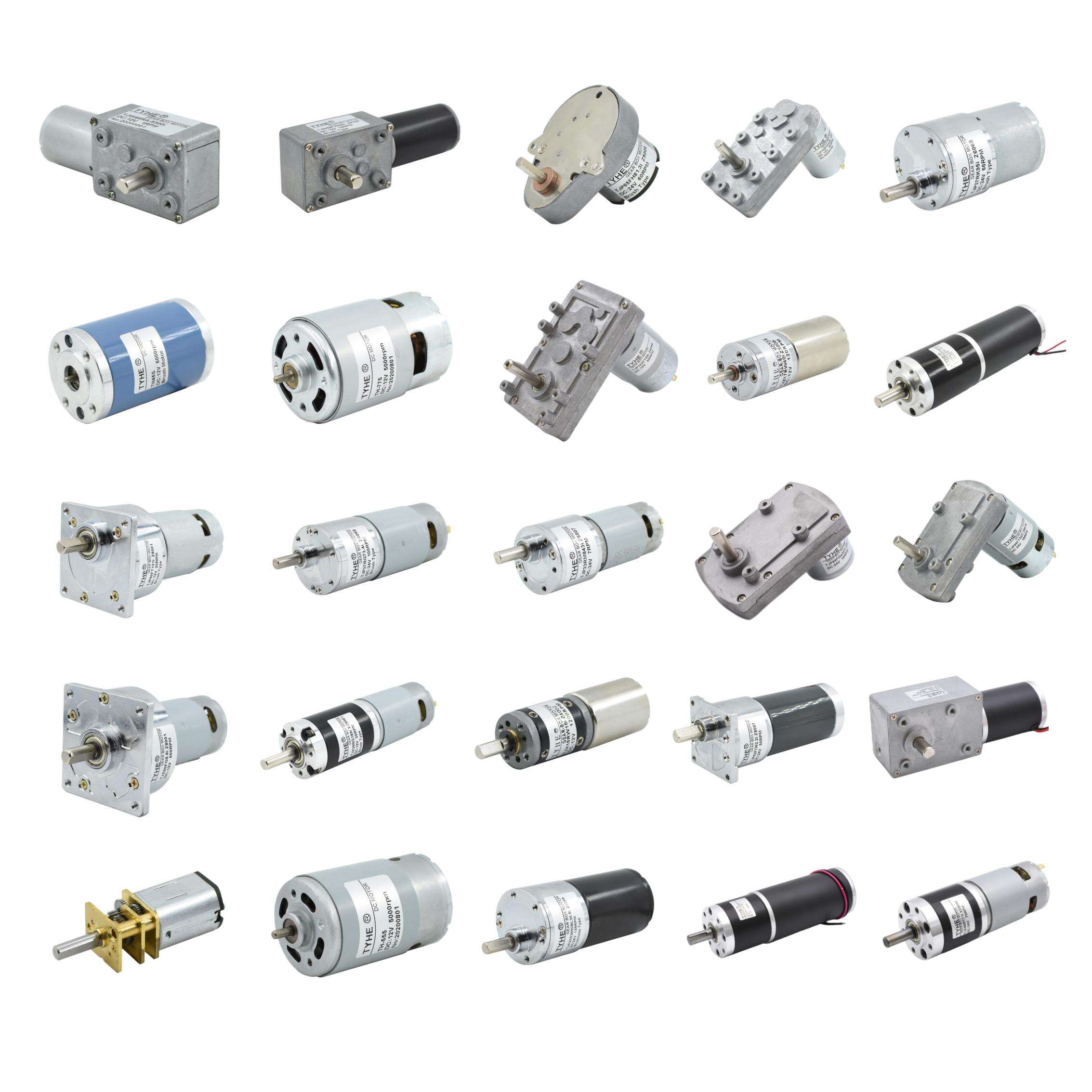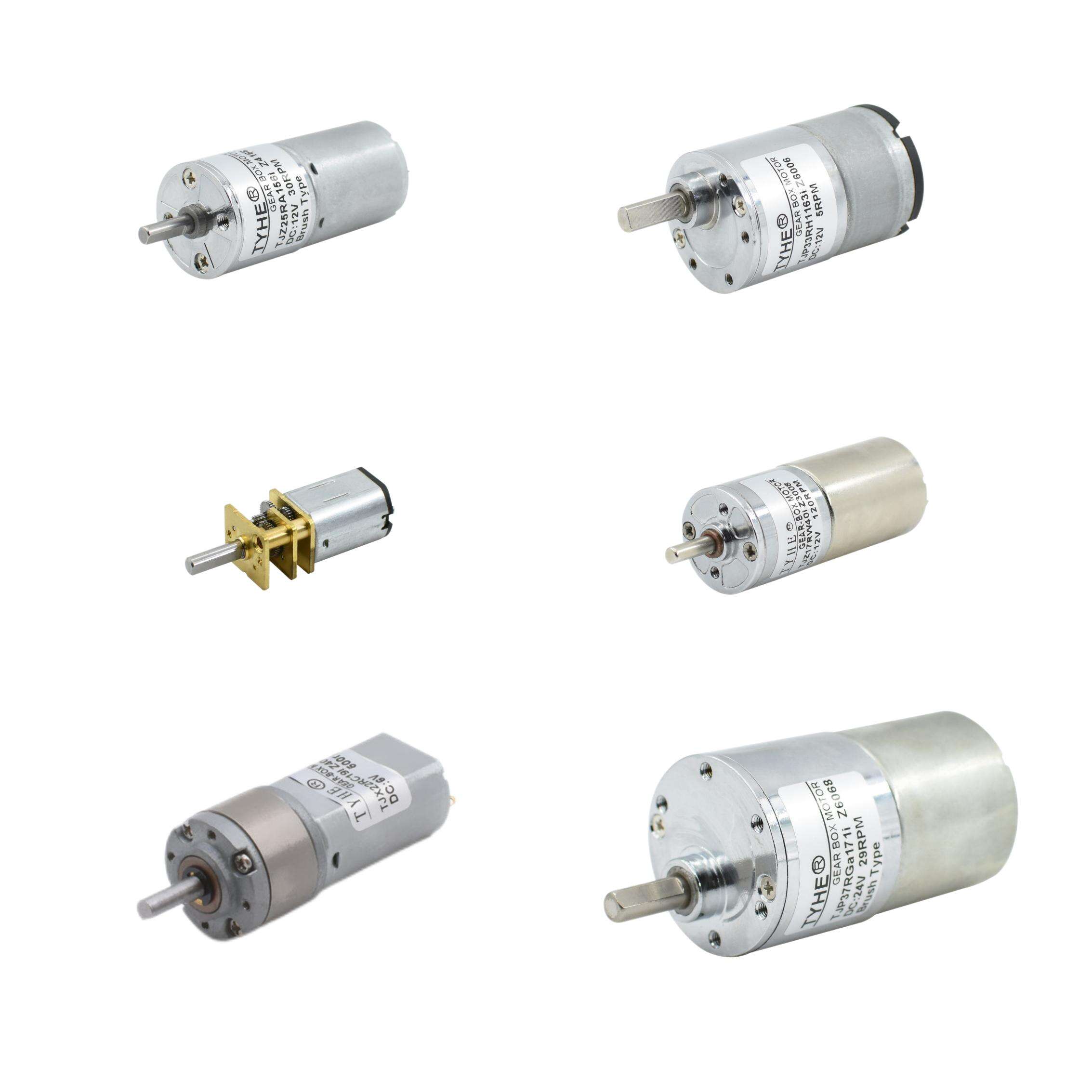Revolutionary Impact of Miniature Motors in Modern Manufacturing
The industrial landscape has been transformed by the integration of small dc motor technology across countless applications. These compact yet powerful devices serve as the backbone for automation, precision control, and efficient operations in various manufacturing sectors. From robotics to consumer electronics, the versatility and reliability of small dc motors continue to drive innovation and productivity improvements.
As industries evolve and demand greater precision and efficiency, small dc motors have become increasingly sophisticated, offering enhanced control capabilities, improved energy efficiency, and remarkable durability. Their compact size, coupled with impressive power output, makes them ideal for applications where space is at a premium but performance cannot be compromised.
Essential Applications in Manufacturing and Assembly
Automated Production Lines
Manufacturing facilities worldwide rely on small dc motors to power conveyor systems and automated assembly processes. These motors enable precise control of production line speeds, ensuring smooth material flow and consistent product quality. In modern factories, hundreds of small dc motors work in harmony to maintain optimal production rates while minimizing energy consumption.
The integration of smart controls allows these motors to adjust speeds automatically based on production demands, reducing wear and extending operational life. This adaptive capability has revolutionized how manufacturing lines operate, enabling real-time adjustments and improved efficiency.
Robotic Systems and Automation
Industrial robots represent one of the most sophisticated applications of small dc motors. Each robotic arm typically incorporates multiple motors to achieve precise movement across different axes. The combination of high torque and accurate positioning makes these motors essential for tasks ranging from welding to pick-and-place operations.
Advanced control systems paired with small dc motors enable robots to perform intricate tasks with remarkable precision. This level of accuracy has made automated manufacturing processes more reliable and cost-effective than ever before.

Innovation in Consumer Electronics Manufacturing
Precision Assembly Equipment
The production of smartphones, tablets, and other electronic devices demands extremely precise assembly processes. Small dc motors power the automated equipment that places components with microscopic accuracy. These motors must maintain consistent performance while operating at high speeds to meet production targets.
Modern electronics assembly lines utilize sophisticated motor control systems that can adjust to different product specifications instantly, enabling flexible manufacturing capabilities. This adaptability is crucial in an industry where product cycles are increasingly short.
Testing and Quality Control Systems
Quality assurance in electronics manufacturing relies heavily on automated testing equipment powered by small dc motors. These motors drive various testing mechanisms, from button activation simulators to screen testing devices. The precise control offered by these motors ensures consistent and reliable testing procedures.
Advanced testing systems can perform thousands of cycles without degradation, thanks to the durability and reliability of modern dc motors. This capability is essential for maintaining high quality standards in mass production environments.
Automotive Industry Applications
Vehicle Component Manufacturing
The automotive industry employs small dc motors extensively in the production of various vehicle components. From power window mechanisms to mirror adjustments, these motors are crucial in manufacturing modern vehicle comfort features. The demand for increasingly sophisticated automotive systems has driven continuous improvements in motor design and performance.
Manufacturing processes for these components require precise control and consistent operation, making small dc motors the ideal choice. Their reliability and long service life ensure minimal production interruptions and consistent quality output.
Electric Vehicle Systems
The growing electric vehicle market has created new applications for small dc motors in auxiliary systems. While the main propulsion system uses larger motors, numerous small dc motors control everything from battery cooling systems to charge port covers. These applications demand high efficiency and reliable performance under varying conditions.
The integration of smart control systems allows these motors to optimize their operation based on vehicle status and environmental conditions, contributing to improved overall vehicle efficiency.
Medical Device Manufacturing
Precision Medical Equipment
The medical device industry relies on small dc motors for manufacturing equipment that requires exceptional precision and reliability. From surgical instruments to diagnostic devices, these motors power the production of life-saving medical equipment. The strict regulatory requirements in medical manufacturing demand motors that can maintain consistent performance while meeting cleanliness standards.
Advanced motor control systems enable manufacturers to maintain detailed production records and ensure compliance with medical device manufacturing regulations. This capability is crucial for maintaining quality standards and regulatory compliance.
Laboratory Automation
Modern medical laboratories utilize automated systems powered by small dc motors for various testing and analysis procedures. These motors drive sample handling equipment, automated pipettes, and diagnostic instruments. The precision and reliability of these motors ensure accurate test results and efficient laboratory operations.
The integration of sophisticated control systems allows these motors to perform complex sequences of movements with high repeatability, essential for maintaining testing accuracy and throughput.
Packaging and Material Handling
Automated Packaging Systems
The packaging industry extensively uses small dc motors in automated systems for product sorting, packaging, and labeling. These motors power conveyor systems, robotic pick-and-place units, and packaging seal mechanisms. Their reliable operation ensures consistent packaging quality and high production rates.
Modern packaging systems incorporate smart motor controls that can adjust to different package sizes and types automatically, providing the flexibility needed in modern manufacturing environments.
Warehouse Automation
Automated storage and retrieval systems in modern warehouses rely on small dc motors for various functions. From automated guided vehicles to sorting systems, these motors enable efficient material handling and inventory management. The ability to operate continuously while maintaining precise positioning makes them ideal for warehouse automation applications.
The integration of advanced control systems allows these motors to operate as part of sophisticated warehouse management systems, optimizing material flow and reducing operational costs.
Frequently Asked Questions
How long do small DC motors typically last in industrial applications?
In industrial applications, small dc motors are typically designed to last between 3,000 to 10,000 operating hours, depending on the specific use case and operating conditions. With proper maintenance and operating within specified parameters, many motors can exceed these expectations. Factors affecting longevity include duty cycle, environmental conditions, and load characteristics.
What are the key maintenance requirements for small DC motors in manufacturing?
Regular maintenance for small dc motors includes checking brush wear (in brushed motors), monitoring bearing condition, ensuring proper cooling, and keeping the motor clean from debris and contaminants. It's also important to regularly verify proper alignment and check for unusual noise or vibration that might indicate potential issues.
How are small DC motors being improved for future industrial applications?
Manufacturers are focusing on developing more energy-efficient designs, implementing smart control capabilities, and improving durability through advanced materials. Integration of IoT sensors for predictive maintenance and the development of brushless variants with longer service life are also key areas of innovation in small dc motor technology.


